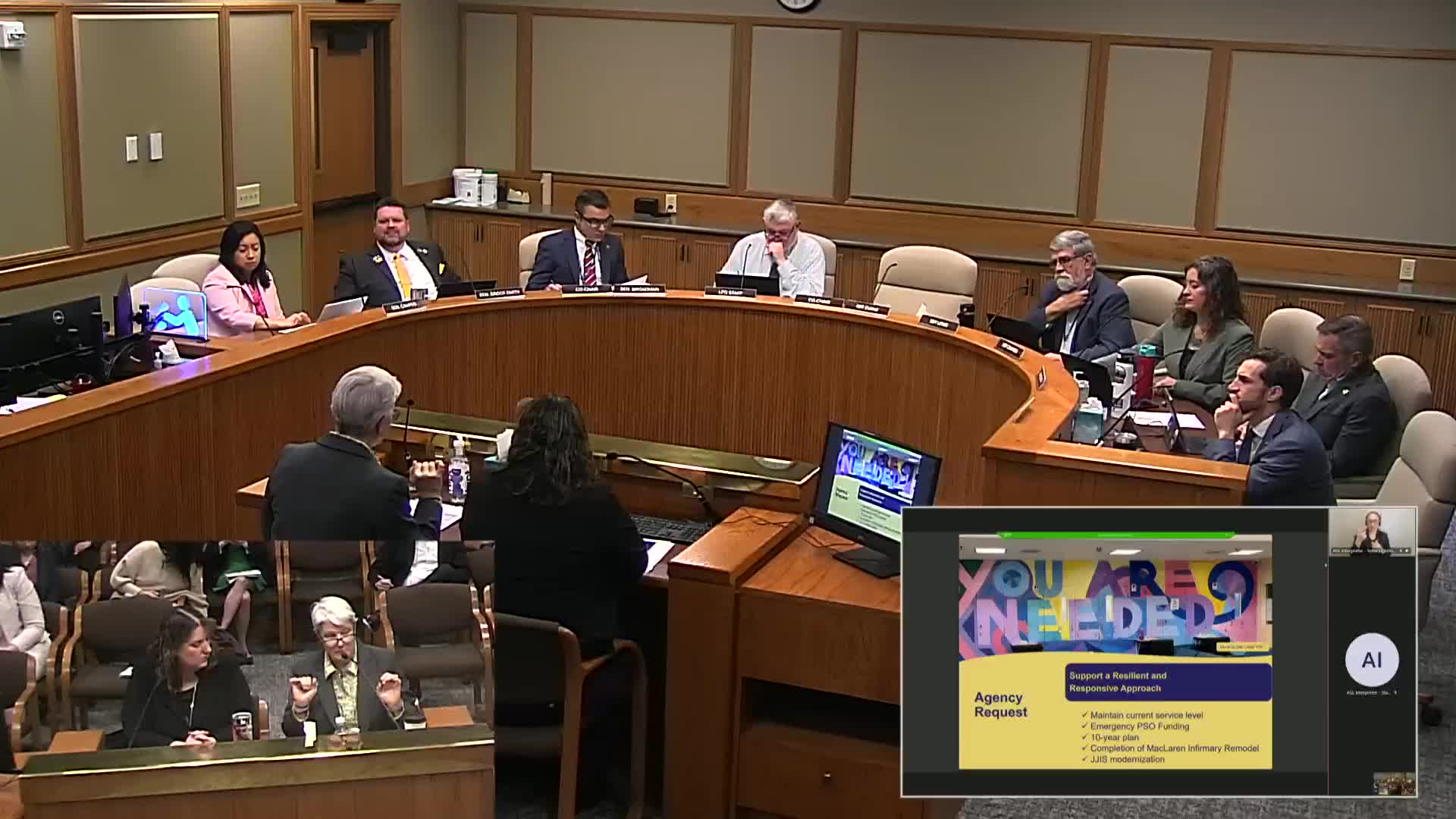Oregon Youth Authority says 733 investigations were open or suspended and more than 3,000 cases unsigned; backlog shrinking to 523, director says
Get AI-powered insights, summaries, and transcripts
Subscribe
Summary
Interim Oregon Youth Authority Director Jana McClellan told the Public Safety Committee on March 26 that a January report found two troubling case counts in the agency's Professional Standards Office: "One was 733 and one was over 3,000," referring to open/suspended cases and closed cases that lacked chief‑investigator sign‑off.
Interim Oregon Youth Authority Director Jana McClellan told the Public Safety Committee on March 26 that a January report produced by the Department of Corrections found two troubling case counts in the agency's Professional Standards Office: "One was 733 and one was over 3,000," she said, referencing, respectively, the number of cases that were open or suspended and the number of closed cases that had not been signed off by the chief investigator.
McClellan said the agency has since moved to address the backlog. "That number was 733. That number's going to change up and down because as we go in and look at cases ... we are reopening them for a complete investigation," she told the committee, and later reported the current open and suspended total as 523.
The two figures carry distinct meanings, McClellan explained. The 733 represented cases that were either open or suspended; "suspended" means the agency referred the investigation to another entity — for example, the Oregon Department of Human Services or the Oregon State Police — and OYA had left the case in an open/suspended status. The 3,000 figure referred to closed investigations that had not been reviewed and signed by the unit's chief investigator, which McClellan said left uncertainty about whether those investigations were reviewed properly.
McClellan told the committee the agency has doubled investigative resources for the Professional Standards Office, separated staff into a backlog team and a current‑work team, and increased supervision and reporting frequency. She said the interim chief investigator who is leading the unit previously served in that role and that leadership is holding daily check‑ins. "The extra resources that we've brought on ... are starting to look at those 3,000 cases and those 733 cases," she said.
On internal controls and timeliness, McClellan said the PSO maintains policies intended to limit investigation timelines (typically 60 days, with 90 days allowed in cases that are suspended). She told the committee the agency is building weekly trackers — referred to in testimony as a "blue sheet" — and is working with its research team to create automated reports to monitor open, pending and suspended cases and to flag trends. She said the unit's chief investigator has split staff into two teams to pursue backlog and current complaints and emphasized the intensive supervision now in place.
Representative Lewis asked whether any backlog cases may be PREA (Prison Rape Elimination Act) violations and asked about PREA compliance schedules. McClellan said PREA audits are conducted on a rolling schedule and that the next PREA audit was set for June and would cover McLaren, Oak Creek and Jackie Winters transition units. On the question of how many backlog cases constitute alleged PREA violations, McClellan said the backlog team is triaging cases for priority (a red/yellow/green review) and that the agency would provide counts for committee members as it completes the triage.
McClellan acknowledged that the backlog represents an important accountability problem and described additional reporting and oversight steps the agency has begun to implement, including weekly aggregate reporting to agency leadership and plans to provide tracking tools for an oversight committee the agency expects to convene.
Committee members pressed for assurance the backlog cannot recur. McClellan said she receives weekly reports and will seek to automate reporting to provide trend alerts, but added "each case takes as long as each case takes," emphasizing that complex investigations cannot be rushed. She offered to provide committee members follow‑up materials and specific counts as the backlog triage proceeds.
